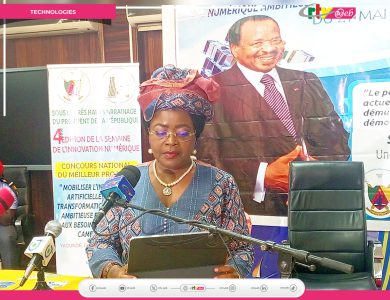Cameroon observed the 11th Universal Health Coverage (UHC) Day on a satisfactory note as over 3.5 million people have enrolled for the first phase of the health plan since its launch, according to the Ministry of Public Health.
The Universal Health Coverage scheme was launched on 12th March 2023 in Manjou, East region of the country, with public health authorities targeting an enrollment of six million for the first phase.
To mark the 11th International Universal Health Coverage Day, the country’s Public Health Minister, Dr. Manaouda Malachie granted a press briefing on 12th December during which he presented the 20-month report on the UHC plan since its launch.
Holding on the theme “Health: It’s on the government!, the UHC Day was a call for governments to invest in health and ensure equitable access to health care services for everyone.
According to figures from the Ministry of Public Health, 3,524,687 people have enrolled for the UHC, 5,044,347 children vaccinated against poliomyelitis, 1,080,424 free pediatric consultations carried out and 10,194 caesarean sections performed.
“We have reached an important milestone, but UHC is a collective project. Each actor, public or private, must play his role to make this ambition a sustainable reality for the benefit of the populations,” Dr. Manaouda said.
Vulnerable groups including pregnant women and children under five and people suffering from HIV, tuberculosis, and other pathologies are among priority groups for the UHC health scheme.
As the UHC journey in Cameroon unfolds, Dr. Manaouda Malachie says the treatment offer will hence be extended to diabetes type 1 and viral hepatitis patients. Since its implementation, people living with HIV have been receiving comprehensive and free essential services in addition to free antiretrovirals. The UHC scheme has also made it possible for dialysis patients to receive treatment at just a fraction of the previous cost.
Achieving set goals will be facilitated by the construction and rehabilitation of health centers, capacity building for health professionals which is essential to ensure the UHC is sustainable.
“ We have three categories of people to whom we provide health care service- HIV patients, pregnant women and children. Since April, we have moved from 80 antenatal consultations to 280 as of now,” Bissai Annie Flore, Head of the Ebolowa Urban Health Centre said.
As the quest for equitable health access becomes a reality in Cameroon, Dr. Manaouda Malachie calls on all Cameroonians to put hands on deck to “build a Cameroon where health is a right for all.”
The UHC Day highlights the importance of robust and resilient health systems that offer equitable access to health care services for everyone, especially the vulnerable who are in dire need of these health services.
Kathy Neba Sina










